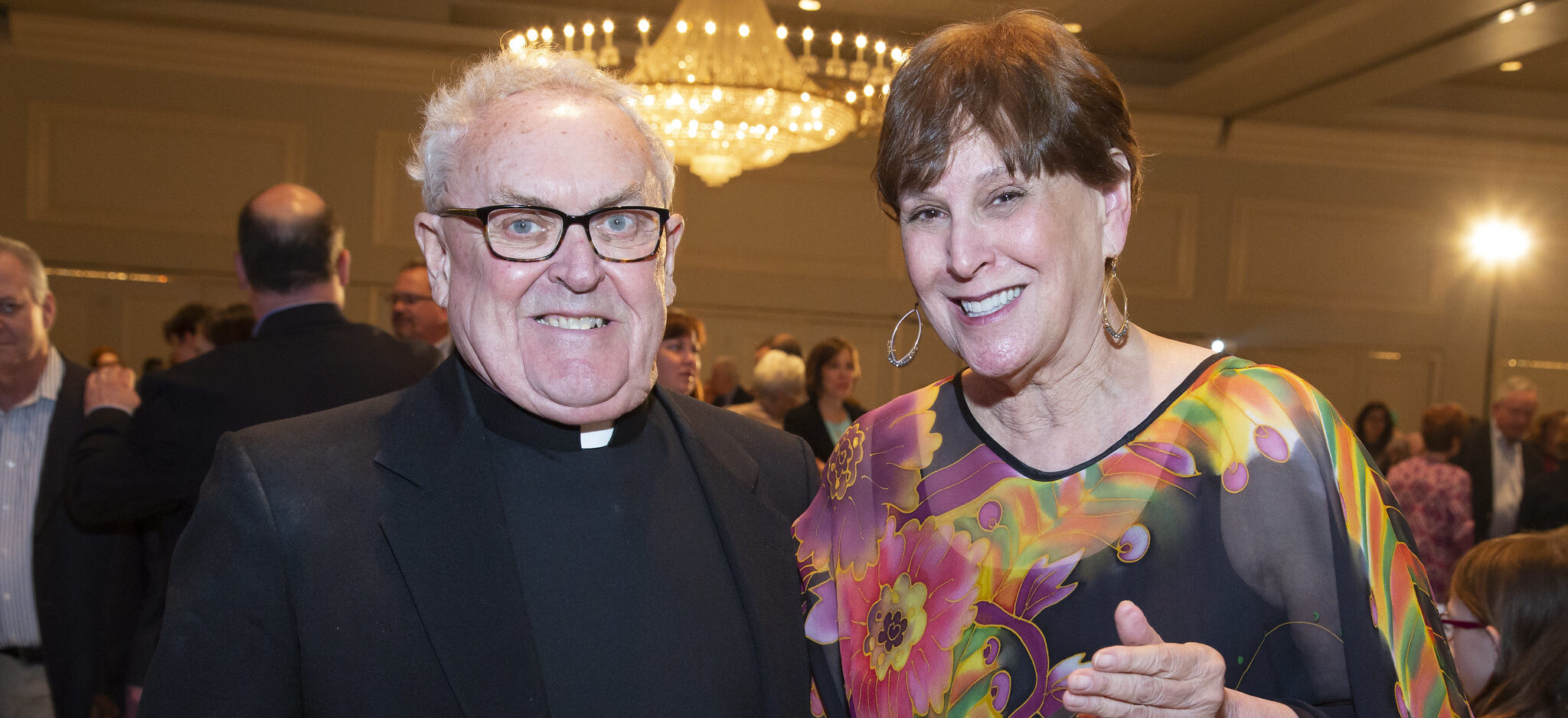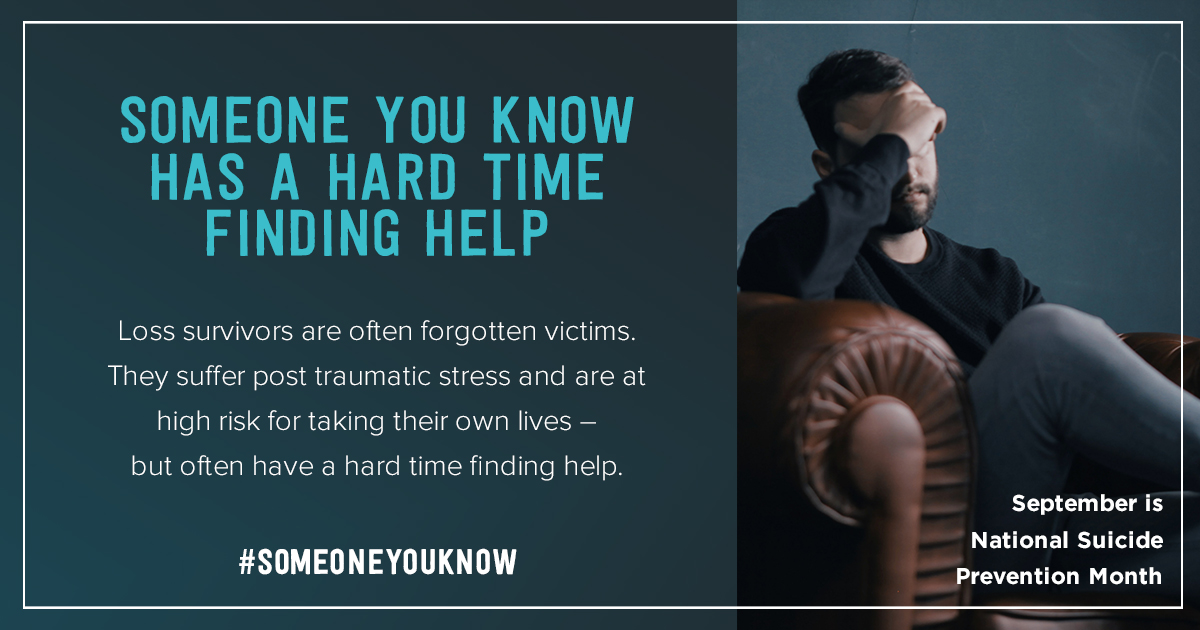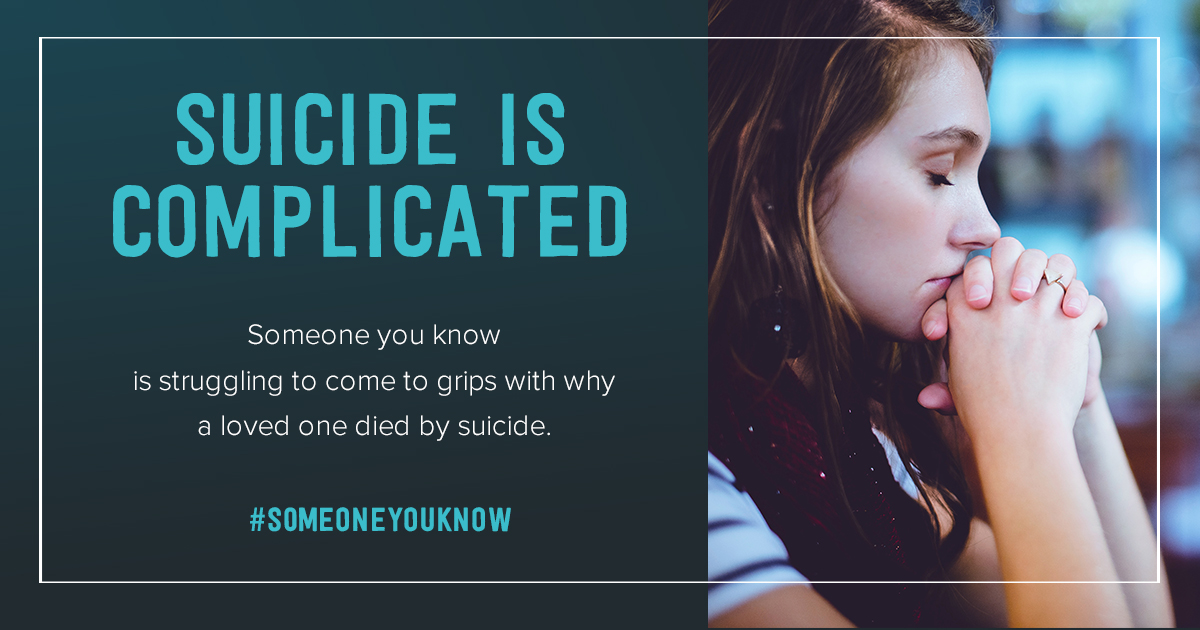On April 28, 2019, Ronnie Susan Walker MS LCPC, Founder of the Alliance of Hope, spoke at the 40th Annual Catholic Charities “bLOSSoms of Hope” brunch in Chicago, and received the Charles T. Rubey LOSS Award, “for extraordinary service to suicide loss survivors.” She said it was humbling to look out on nearly 1000 people who had lost loved ones — comprehending their pain, courage, and perseverance. Here are excerpts from the keynote speech she delivered:
“Hello Everyone,
First and foremost, I want to thank you for this award. I’m very honored. I’m particularly moved to be standing here before you, because it was the LOSS program that supported me in 1995, after the death of my 21-year old stepson, Chan. Back then, I was so broken, I didn’t know where to turn. This program was my lifeline. It was the one place I could go where I felt understood.
When I learned I would receive this award, I began to think back on the last 24 years. I recalled the days just before Chan died – and the days, weeks, and months after he died. I remembered good times as well as bad times. I revisited my gratitude for all the people who reached out during those very dark and difficult days. I also saw how deeply I have been influenced by the courage, compassion, and kindness of other survivors I have met.
When I look around this room, I am present to the character and strength of individuals within the survivor community. I’ve been told there are about 1,000 people here. That’s amazing. Even more so when one realizes that we represent only a tiny fraction of the survivor community that exists in this country and across the world. I’ve come to see over and over again when survivors gather together as we have today, that which divides people falls aside. We are linked by a shared understanding of what it means to lose someone to suicide.
Some of you in the room today have losses that are very recent. It may have taken a lot for you to get dressed and come to this event today. Others – like myself – have losses that go back one, two, three decades or more. I believe it is very important for those of us who are further along to share our stories, in reassurance that the initial devastating pain of loss does diminish and transform. People do survive and even eventually go beyond just surviving.
I recall once hearing Fr. Rubey say that when someone dies by suicide, those closest are catapulted onto a journey. I’ve come to see the 24 years since Chan’s death as a “journey.” I was asked to share a bit of my journey – or my story – with you today, and I will do that, knowing that it might be useful, to the extent that my story reflects the human story of loss and struggle and healing and growth. I hope my story will provide encouragement for someone here today. …
THE CALL
I’d like to tell you just a bit about my stepson, Channing Werner Stowell. We called him Chan. Chan was a brilliant young man. He grew up in Barrington, IL. He was successful in school and in sports. He was well-liked by his friends and well-loved by his family. Unfortunately, he developed bipolar disorder at the age of 16. In his case, it was a devastating disease. He experienced severe mood swings, delusions and suicidal thoughts that robbed him of his ability to see things clearly. He was 21 years old and a junior at Stanford University when he fell into a deep depression and ended his life. It was a devastating loss.
Like most survivors, I remember exactly where I was when I learned he had died. On August 4th, 1995, at 4 p.m., I stood at the top of our basement stairs, phone in hand, hearing – but not really absorbing. My husband had to repeat to me several times, in different ways, that Chan was dead before I could actually grasp it. Once I did understand, I started to shake. The shaking continued all night. Come morning, I had lost five pounds.
Over the next few days, friends and family arrived. Neighbors brought food, cards, and flowers. Funeral home staff led us though required activities: Obituary – Cremation – Memorial. Five hundred people came and went, and then, within a week, our family – minus one – went back to work.
Three long weeks had passed by the time I placed a call to the Catholic Charities LOSS Program. I can’t remember what happened during those weeks. It’s blank, but I do remember sitting — collapsed on the floor at the bottom of the stairs leading to our bedrooms, when I placed a call to the LOSS Program. And I vividly recall the relief I felt when the receptionist told me to come in the very next day to meet with a counselor.
Back then, my emotions were unpredictable — as they are for most new survivors. Anxiety, guilt, and despair were constant companions. I couldn’t focus at work. My 10-year marriage began to falter and then, five months later, it failed. Although I was a clinical mental health counselor, nothing in my traditional training provided a context for what I was experiencing.
In the years following Chan’s death, I began to move forward – little by little – Inch by inch. And eventually, about 10 years after his death, I began to work as a counselor for the LOSS Program. It was very rewarding to see the healing that happened and the friendships that grew in LOSS support groups. It was amazing to see people begin to smile again.
About that same time, I realized two things: First that many people – in other cities – weren’t as fortunate as I had been. They didn’t have programs like LOSS to support them. And second, I noticed there was very little online support for survivors.
I guess one could say I felt a “calling.” I sat down and created the Alliance of Hope website and an online survivors forum to offer the kind of information, friendship and hope I had received at LOSS, to other survivors. I wrote about the possibility of growing wiser and stronger on the journey through grief, and the possibility of eventually making a meaningful difference as a result of one’s loss. BUILD IT AND THEY WILL COME.
Looking back now, it’s remarkable that anyone ever found the Alliance of Hope website. Initially, it was number 10,000 in a Google search. Yet people found us. They came, first in a trickle, and then, in a steady stream of six new online forum members every day. Today our forum hosts almost 16,000 loss survivors from all over the world. And last fall, we launched a new website. It is a comprehensive resource for survivors and the professionals who serve them.
Over the last 11 years, we’ve expanded our services, but our online community forum remains the heartbeat of the Alliance of Hope. It operates like a 24/7 support group and reaches thousands who have little to no in-person access to other support. It is overseen by a mental health counselor and trained team of 30 volunteer moderators. They work very hard, to ensure that the forum remains safe and healing and that no survivor goes without support. …
So now I’ve told you a little about my journey. I believe the most important thing I can leave you with today, is the reminder that each of us has a journey. When we are wandering in the dark, after the suicide of a loved one, it may be hard to believe that light will ever return to one’s life – but it does. We are forever altered by the loss of a loved one, but the vast majority of people do survive and even eventually go beyond just surviving to find themselves making a meaningful difference in ways they never anticipated.
In closing, I want to say that while I am the person standing up here today, I did not build the Alliance of Hope alone. It’s a community effort. I’ve had tremendous help from so many people who have done things that have taken it far beyond what I ever imagined. Some of them are here with me today. My daughters Heather Shadur and Jennifer Shadur are here. Heather came all the way from Hawaii. They have both done so much to support me personally and to strengthen the Alliance of Hope. I also want to thank the board members, advisors, and friends who traveled long distances to share this occasion with me today.
Last, I want to say again how profoundly grateful I am for all the support I received from the LOSS Program over the years. Without that support, my life would have gone in a very different direction. Receiving this award is very moving. It’s empowering. And it’s unforgettable. I’m very honored. Thank you.”




